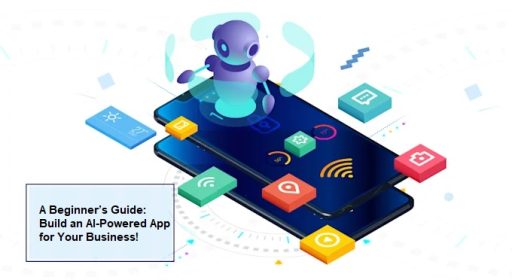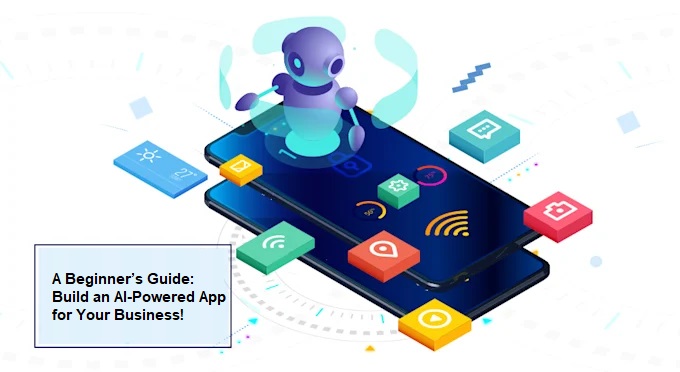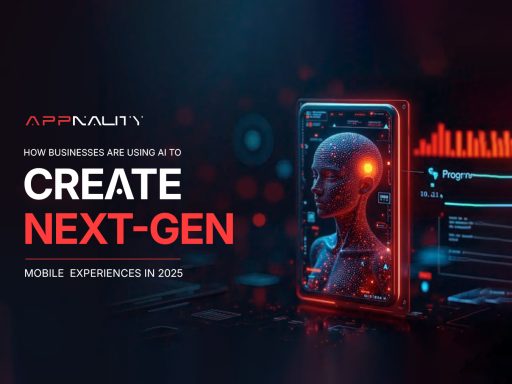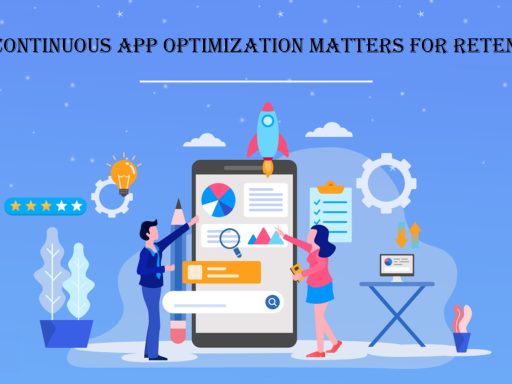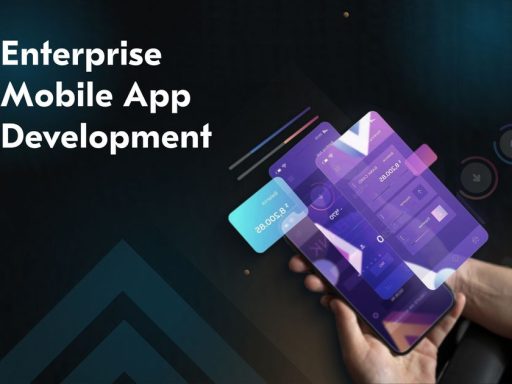AI isn’t a trend anymore; it has become a revolutionary technology, constantly changing the world. Hundreds of business owners are using AI to streamline their day-to-day operations. If you’re a business owner with a fresh mobile app idea but don’t want to spend your money, the best way to save thousands of dollars is to build an AI app yourself!
This blog breaks down the step-by-step AI application development process to help you get started. It’s advisable to rely on an artificial intelligence development company. Several business owners utilize app development services to create the best AI apps. Let’s explore the overview of AI apps, some AI application examples, and the AI App development process!
AI Applications: An Overview
Think of an AI application as a professionally developed software that can perform tasks that require human involvement, including decision-making and critical thinking. The use of AI applications is increasing significantly across various industries.
One of the significant examples is AI in healthcare, where AI is used to diagnose diseases. The fintech industry uses AI to detect and help prevent fraud. At the same time, the retail sector makes use of AI to provide personalized shopping experiences, which enhances the functionality of applications.
AI applications are being widely utilized by organizations worldwide to improve efficiency and optimize workflows, and have made work faster and easier than ever. One of the most common examples of the utilization of AI in day-to-day life is Netflix. Suppose, you’ve just opened your Netflix application, and it starts suggesting some of the recommended shows. This is an example of weak AI.
Some of the Most Commonly Used AI Apps
- Amazon Alexa
- Google Assistant
- Cortana
- Grammarly
- FaceApp
- Siri
- ELSA Speak
- ChatGPT
- Gradient AI
The Step-By-Step Process to Build an AI App
1. Identifying the Business Requirements
Before starting your application development process, it’s essential to be clear about the main motive or reason behind your application. An AI application will be helpful for your brand or business only if your app provides a solution to any of the concerns of your target audience.
On the other hand, you might need an AI application if your aim in building the app is to help your users streamline their workflow or make any of their day-to-day tasks easier. When you collaborate with an experienced AI development company like Appnality, you can ensure that the idea of your app is strategically being processed, not based on assumptions and experiments. The main goal is to develop efficient, smarter, and more useful AI applications from the outset.
2. Collecting Data
Without proper data and analytics, your application will not learn, adapt, or perform according to your requirements and expectations. At this stage, developers work hard to collect data that mainly includes customer feedback, system logs, third-party APIs, and more.
Keep in mind that this information is not enough. To make an efficient application specifically catered to your target audience, you need to collect as much information in the form of demographics, audience behaviour, etc.
In order to maximize the potential of your AI model, make sure it’s organized and understands your business model clearly. The outcome of these organized AI systems will depend on the quality of your data inputs.
3. Selecting the Right AI Model
It’s crucial to understand that every AI model is built differently. The choice of your AI model will solely depend on the purpose of your application. Consider various aspects, such as chat, automation, predictive analysis, or image recognition. If you’re certain about the purpose of your app, it can help your application development partner select the best model that perfectly meets your goals and requirements.
Selecting the right AI model means you will choose from machine learning, deep learning, or a mix of multiple technologies. Choosing wisely here means your app will work smarter and deliver value faster. It’s advisable to understand that a one-size-fits-all approach won’t be applicable to AI development. So, seeking assistance from experts is the best option.
4. AI Model Training
The next step after finalizing your AI model is its training. In simple words, you can imagine AI training as teaching a student. In this step, you provide the model data and see what the AI learns. Corrections are made afterwards where needed.
Simultaneously, the developers are responsible for enhancing the model with various algorithms until they become efficient to a certain level of accuracy. This accuracy will depend upon the requirements of your brand or business objectives. It’s true that AI training is a repetitive, time-consuming, and detailed process, but it is totally worth it.
5. App Development & Integration
This stage of the AI application development process is where your AI model comes to life, that too, inside an actual application. The development team will create user-friendly designs by ensuring smoother backend systems. After this, the AI model is integrated, guaranteeing that it works perfectly with your tech stack.
It does not matter if it’s a mobile app, a website tool, or an enterprise platform; the objective is only one: to incorporate AI naturally as a part of the experience. This is a critical stage that bridges the gap between the intelligent algorithms and the user’s needs through functional APIs and an intuitive User Interface.
6. Testing & Optimization
Just like any other application, AI apps need thorough testing. This is done not just for debugging, but also for improving AI models’ performance. When testing the AI model, ask yourself these questions:
- Is the AI giving correct answers?
- Does it maintain the consistency?
- Is it being unbiased and fair?
- Is your AI model scalable?
If you utilize artificial intelligence development services from an adept company, the development team will run various performance tests to make sure that the app is functioning correctly and behaves strategically under all expected situations.
If the results do not meet expectations, the experts will tweak the model or adjust the training to ensure everything works according to your goals. With critical thinking, the team will make changes without reducing the efficiency of the AI model. Optimization is one of the crucial aspects as it will make sure your app works smoothly while delivering maximum value to your users.
7. Launch & Post-Deployment Support
This is the most exciting part — after being tested carefully, your app is ready to launch! Every feature and design of your app is finalized, and now is the time to release your MVP AI application to the real users, your actual audience.
Launching the first version can help validate the idea by receiving necessary feedback so that you can modify the app features according to real-time data. But it’s important to remember that the work is still not finished. This is where the post-launch support stage begins.
Post-lunch support is vital to make sure that the app does not have issues and is working correctly. One more thing to consider during this stage is that it adapts to new behavior changes and caters to the new user data.
The Benefits of AI App Development
Using AI for developing applications offers several advantages, including cost savings, personalized experiences, and more. Here’s a brief breakdown of its advantages:
1. Better User Experiences
Artificial Intelligence can understand the user behaviour based on real-time data, which helps provide personalized content, recommendations, and support. The chatbots solve the consumers’ concerns and offer suggestions that guide users throughout the app experience. This contributes to enhanced customer engagement and satisfaction.
App development companies like Appnality help business owners implement AI-powered personalization without modifying or entirely transforming the tech infrastructure. The results are amazing – happier customers that stay longer and utilize the services more often.
2. Predictive Analysis
One of AI’s most powerful features is its ability to predict outcomes based on data. Whether it’s predicting user behaviour, meeting the demands, or predictive analytics, AI is contributing to informed decisions.
This approach is highly beneficial for several industrial sectors such as logistics, finance, healthcare, and eCommerce. AI models can also analyze previous trends to help spot patterns. It can greatly offer future insights, ensuring maximum accuracy. Partnering with an adept company like Appnality guarantees smoother integration into your application, providing quicker and more thoughtful responses.
3. Improved Accessibility
AI helps make apps more inclusive. Features like voice recognition, speech-to-text, image recognition, and automated translations enable users with different abilities to interact effortlessly with your app. For example, visually impaired users can rely on voice commands, while multilingual support opens doors to a global audience.
AI-driven accessibility also adapts to each user’s unique preferences. Professional companies can tailor these solutions to your app, helping you reach a wider audience and meet compliance standards, without compromising the user experience.
4. Streamlined Prototyping
The new advances in AI technology have greatly influenced the prototyping phase in app development. Rather than spending weeks creating mock-ups and designs, the developers can use AI technologies to develop prototypes in less time than expected.
These prototype apps not only display the graphics, but they can also simulate the behaviour of the actual app to showcase the product to stakeholders.
This improves the feedback, iteration procedures, and decision-making. While working with an experienced team like Appnality, you can use AI technologies to test concepts and reduce the time-to-market for your application.
5. Ongoing Optimization
Once the AI application is published and launched, it is still capable of learning and gathering new data. AI continuously analyzes user interaction to improve the overall functionality and performance. It mainly includes enhancing recommendation engines and improving the response times.
Adept companies that excel in AI app development ensure that your AI application is updated regularly, along with being model-retrained. These are not like traditional applications; the AI applications have the ability to evolve and adapt to user needs.
In Which Industries Is AI Commonly Used?
- Healthcare: The healthcare industry utilizes Artificial Intelligence to carry out smoother operations. These include diagnostics, personalized medicine, and patient care.
- eCommerce: both B2B and B2C enterprises are making use of AI technologies to enhance their inventory management processes, providing personalized experiences.
- Real estate: For better property valuation and market analysis, the real estate industry is also experiencing a vast transformation.
- Finance: AI is being extensively utilized in the finance sector to prevent fraud by early detection and risk assessment.
- Marketing: Companies are building AI apps that can automate outreach and predict user behaviour, which can help create personalized and targeted strategies.
- Transportation: AI in the transportation sector is being used to enhance traffic and logistics management. It also contributes to reduced fuel consumption, improving the overall efficiency of daily operations.
Choose Appnality as Your AI App Development Partner!
Appnality is an artificial intelligence development company that is dedicated to developing the best AI apps for its clients. Our team comprises the best AI app developers equipped with the expertise needed to provide the best experiences to businesses of all sizes.
With the increased utilization of AI technologies, businesses like yours can outrank the competition and provide the best cutting-edge solutions to clients. By collaborating with us, you can create an AI app that meets your business goals and stays relevant to your audiences without worrying about the Artificial Intelligence app cost. Get started with our AI app development services today!
